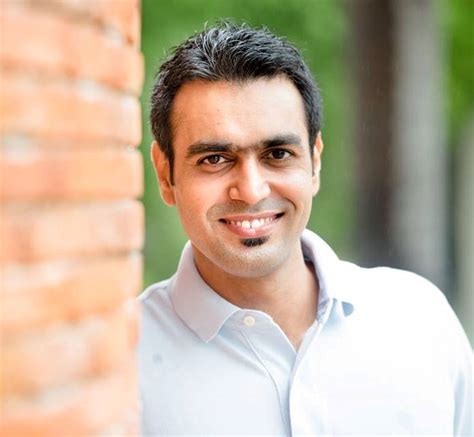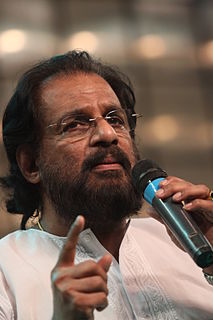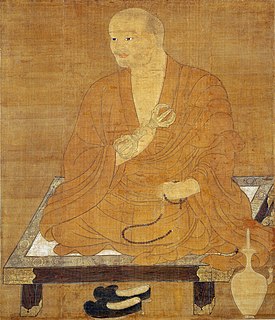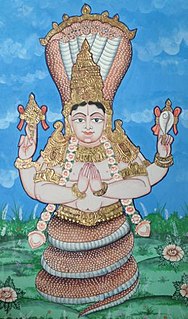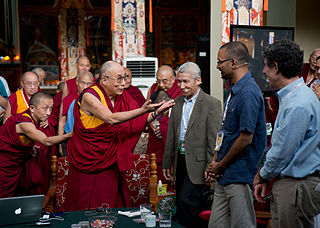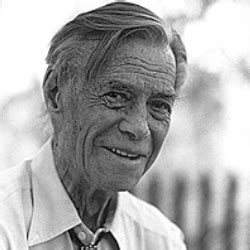Top 58 Sanskrit Quotes & Sayings
Explore popular Sanskrit quotes.
Last updated on November 7, 2024.
Present is the reality. The past is finished, and the future doesn't exist. When the Kundalini rises She elongates those thoughts and establishes in the center where there is complete thoughtless awareness. And spiritually you grow in that thoughtless awareness which in Sanskrit we call as Nirvichaar Samadhi.
A scene of Mahabharata where the Surya Devta(Sun God)would come to bless Kunti with a baby The child watching this on TV says "I have been taught that Neil Armstrong had taken several days to reach the moon.Surya Devta took only half a minute to land up in the Kunti's room; that too, he didn't even need a rocket-he had simply walked. Science and Sanskrit had always appeared contradicting subjects to me at school:-)
Do you know this Sanskrit Shloka: "Let those who are versed in the ethical codes praise or blame, let Lakshmi, the goddess of Fortune, come or go wherever she wisheth, let death overtake him today or after a century, the wise man never swerves from the path of rectitude." Let people praise you or blame you, let fortune smile or frown upon you, let your body fall today or after a Yuga, see that you do not deviate from the path of Truth.
Srila Prabhupada has already had an amazing effect on the world. There's no way of measuring it. One day I just realized, "God, this man is amazing!" He would sit up all night translating Sanskrit into English, putting in glossaries to make sure everyone understands it, and yet he never came off as someone above you.
The mantras, however, are mysterious and each word is profound in meaning. When they are transliterated into Chinese, the original meanings are modified and the long and short vowels are confused. In the end we can get roughly similar sounds but not precisely the same ones. Unless we use Sanskrit, it is hardly possible to differentiate the long and short sounds. The purpose of retaining the source materials, indeed, lies here.
In the night ride across the Wular lake a small storm made me worry for the safety of my manuscript (Rajatarangini). It seemed as if the goddess of wisdom - Sharada, represented by waters of Kashmir, was unwilling to let me abduct the manuscript. This is what happened 1200 years ago to the Chinese pilgrim Hiuen-Tsang, who had to leave his Sanskrit manuscript in the angry Indus River.
The Perennial Philosophy is expressed most succinctly in the Sanskrit formula, tat tvam asi ('That art thou'); the Atman, or immanent eternal Self, is one with Brahman, the Absolute Principle of all existence; and the last end of every human being, is to discover the fact for himself, to find out who he really is.
The air they breathe, being a living element with both physical and psychical properties, carries a subtle vital energy. This in India is named by the Sanskrit word prana; in Tibet it is called sugs, in Aikido, Japan, ki, and in China, chi. By controlling its circulation throughout the body, man is able to attain spiritual enlightenment or illumination.
In the yogic tradition, this principle of using intense effort to burn through life's distractions is called Tapas. It's another Sanskrit word, roughly defined as "heat" or "essential energy." The concept is that through a disciplined approach to work and self-sacrifice, Tapas will burn away the negativity that separates us from God. By working our hardest and happily enduring the hardships of life we are able to create a sense of peace and clarity in ourselves.
The concept of karma is a beautiful concept in Sanskrit. The whole idea of karma is that every being has an innate tendency - the karma of ice is to be cold, the karma of fire is to burn, the karma of the trees is to grow and bear fruit. In the same way, a human has a certain thrust. What I've realized is that my thrust is to be in the world, like in the world of business.
The labours I devoted between 1888 to 1900 to the critical edition, translation and commentary of Kalhana's Rajatarangini, the only true historical text of Sanskrit literature, afforded me ample opportunities of gaining close contact with Sanskrit savants of Kashmir, the land where traditional learning of Hindu India had flourished in old times greatly and survived until recent years.
I am alone, I am all alone, I am completely alone. Grasping this reality, I let go of my bag, drop to my knees and press my forehead against the floor. There, I offer up to the universe a fervent prayer of thanks. First in English. Then in Italian. And then - just to get the point across - in Sanskrit.
India was the motherland of our race, and Sanskrit the mother of Europe's languages: she was the mother of our philosophy; mother, through the Arabs, of much of our mathematics; mother, through the Buddha, of the ideals embodied in Christianity; mother, through the village community, of self-government and democracy. Mother India is in many ways the mother of us all.
The word mantra comes from two Sanskrit words man, ("to think") and tra ("tool'). So the literal translation is "a tool of thought." And that's how mantras are used in Buddhist and Hindu practices, as tools that clear your mind of distractions. Because when you focus on repeating that mantra over and over again, soon the noise will die down and all you will hear is your inner voice.
The word 'art' interests me very much. If it comes from Sanskrit, as I've heard, it signifies 'making.' Now everyone makes something, and those who make things on a canvas with a frame, they're called artists. Formerly, they were called craftsmen, a term I prefer. We're all craftsmen, in civilian or military or artistic life.
I studied Sanskrit for many years, and I've got all the coursework for my Ph.D. And a lot of what's going on in American Yoga is just made-up stuff. Smart people, even good people, Western therapists, Yoga therapists and other things, Western healthcare practitioners who love Asana and say, "Let's make up yoga therapy."



